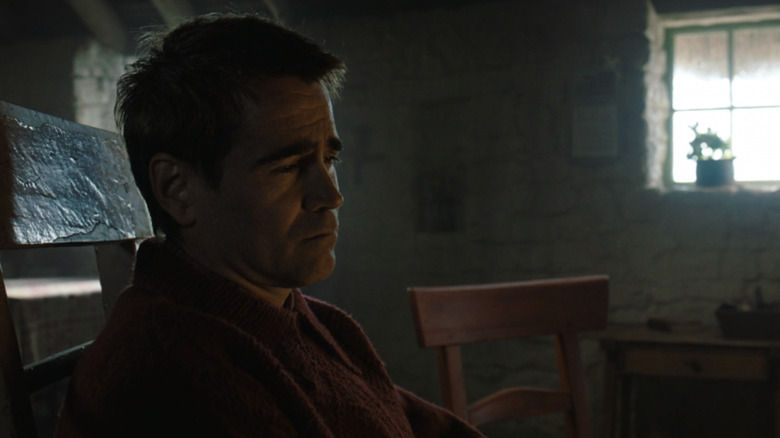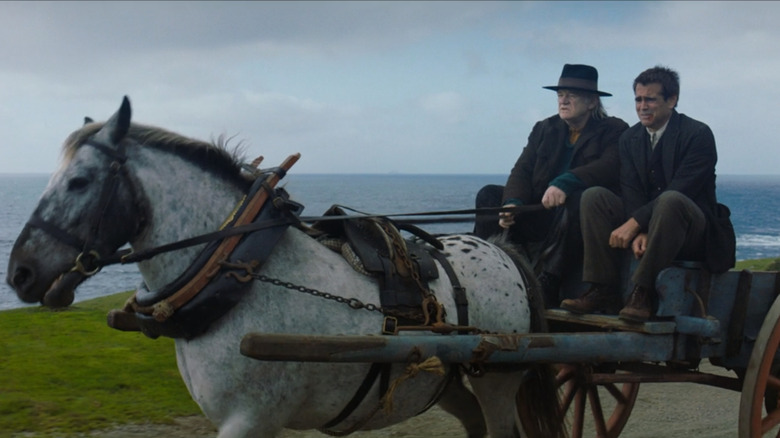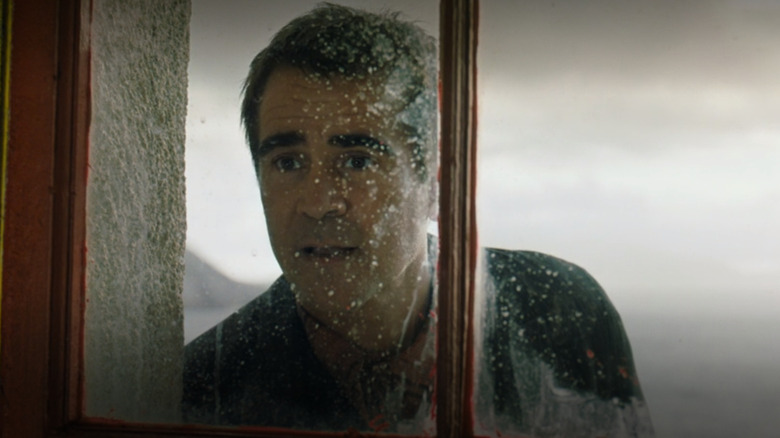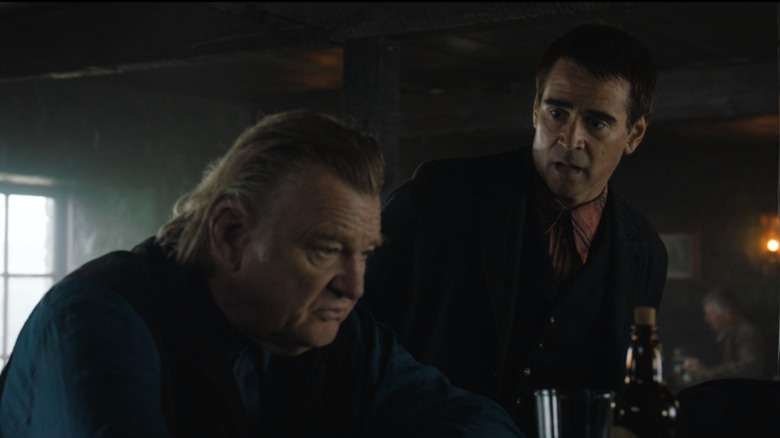The Banshees Of Inisherin Forced Me To Reconcile With My Own Nonsense
This article contains spoilers for "The Banshees of Inisherin."
Letting go of a relationship can be hard. If you're the kind of person who has rejection sensitivity or abandonment issues, letting go can be even more challenging. I've never been great at leaving the past behind, as a combination of ADHD and C-PTSD makes the time a little less linear for me and the past can reappear in my mind at any moment with just as much clarity as the day it happened. It also means I'm ridiculously sensitive to feeling rejected or abandoned, and that anything I feel is "unfair" will bother me far more than it reasonably should. Thankfully, I have TV and movies, the one outlet for creativity and expression that has always made sense to me, and helped me make sense of the world.
Martin McDonagh's "The Banshees of Inisherin," now streaming on HBO Max, is a brilliant, beautiful film that tells the tale of two best friends who have a serious falling out, and it never gives the audience or its characters closure. Much like real life, nothing is wrapped up with a neat bow, and the damage the two men have inflicted upon one another cannot be easily forgiven or rectified. While thinking about the characters and their actions within this isolated, picturesque world, I realized some things about the ghosts of my own past relationships, and finally took a huge step toward letting go.
Some endings are complicated
"The Banshees of Inisherin" uses its deceptively simple story to dig into a whole mess of themes, including depression, grief, the pain of a friendship breaking up, and even the history of Ireland, but what struck me most was how Pádraic (Colin Farrell) refused to respect his best friend Colm's (Brendan Gleeson) boundaries after Colm decides that he doesn't want to be friends anymore. It's hard not to sympathize with Pádraic even if you've never had someone you loved suddenly decide that they want nothing to do with you, but I felt the experience resonate to my core.
My first serious romantic relationship ended when my boyfriend of nine months (which is an eternity when you're 15) told me that the week I had been gone on vacation was the best he'd ever had because I wasn't around, and one of my closest friends as an adult suddenly cut me off with no warning, blocking all methods of contact. I have intimate knowledge of what it felt like to go to bed one night thinking that everything was fine and wake up the next day to discover that something you cherished didn't matter to the other person involved at all, yet I found myself growing frustrated with Pádraic as he refused to give Colm the space he asked for. I had done something similar in both cases, trying desperately to repair each relationship despite the other person wanting nothing to do with me. The ended friendship still hurt, but the movie made me wonder if my attempts at fixing things didn't just make them worse, and if a little patience and self-awareness could have changed how things turned out.
Respecting others' boundaries
In "Banshees of Inisherin," Colm asks Pádraic to never speak to him again, seemingly out of nowhere. The two have been best friends for years, but Colm wants to end the friendship because he thinks that he's wasting what's left of his life listening to Pádraic yammer on about his pony. Pádraic just can't understand it and continues to pester Colm until Colm gives him an ultimatum: if Pádraic doesn't go away and leave him alone, Colm will cut off his finger. And every time Pádraic bothers him thereafter, he will cut off another finger. Of course, Pádraic doesn't think that his friend really means it, especially because Colm is now dedicating his time to writing tunes on the fiddle, but he learns the hard way that Colm was deadly serious. In the end, his continued bothering of Colm leads to real tragedies, including the death of Pádraic's beloved pet donkey, Jenny, and the loss of all of Colm's fingers on one hand. Even if Colm started the whole affair by deciding suddenly and seemingly cruelly that he didn't want to talk to Pádraic anymore, the latter's persistence even after his friend made his wishes clear made things so much worse.
A big part of any relationship, whether it's romantic or platonic, is treating one another with respect. Even if it's understandable that Pádraic pushed Colm's boundaries based on the situation, it still isn't right. Watching him made me realize that even if I wasn't necessarily in the wrong for wanting closure in my own lost relationships, I had contributed to the problem by not treating the other person the way they wanted to be treated, even if that meant just leaving them alone and swallowing my pride.
Letting go of shame, guilt, and pride
After Colm and Pádraic escalate things beyond the point of no return, Colm tries to end it all with a few simple words and Pádraic tells him that he can't, that it's only the beginning. Pádraic has been changed by the experience and even treats others with cruelty, passing on Colm's curse to those who don't deserve it in the least. If he had simply accepted Colm's wishes, he might have been able to go with his sister to the mainland, or make new friends, or even just find peace in the kinship of his animals. Instead, fingers and lives are lost because his pride had been so wounded. When you refuse to accept the wishes of others like he did, you're putting your own needs above theirs. It's a selfish but very human desire to exonerate oneself of shame and guilt, and when a friendship ends there is almost always assumed guilt.
A large part of my own inability to let my friend go was because, like Pádraic, I couldn't understand what I had done to deserve the silent treatment. Instead of thinking about what was best for both of us as human beings, I could only think about how the grief of losing the friendship impacted me. If I had practiced a little radical empathy back when they told me to go away, things might have been different. Maybe we could have fixed our friendship, or maybe we were always destined to drift apart, but it would have been a much less painful and embarrassing ordeal for us both.
Sometimes, you just have to let things go, even when it hurts.



